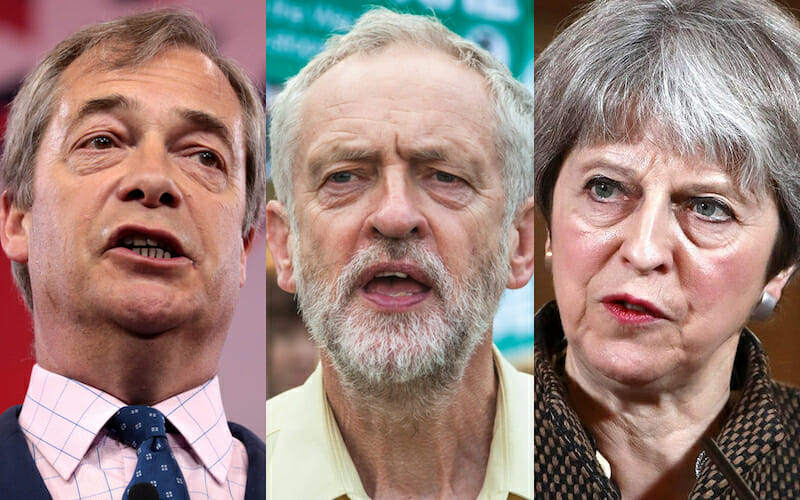
The Brexit Mess is Corbyn’s Political Marketing Fault
If there is someone to blame for the Brexit mess it certainly isn’t Nigel Farage or Theresa May. They have been doing their jobs. The former had been fighting for seventeen years for a referendum to leave the EU and he eventually reached his goal; the latter has taken on her shoulders the irresponsibility of those who quit after the results of the referendum was announced.
However, in the puzzle there is a piece missing: where was the leader of the Labour Party?
Since the beginning, it seemed pretty clear that Jeremy Corbyn has decided to pursue a pre-referendum marketing campaign based on shades of greys that has definitely assisted the cause of his political antagonists, and on a second stage a post-referendum marketing campaign based on the potential of a soft-Brexit transition.
Although this might sound understandable from a theoretical perspective, as some of the Brexiters are left-wing workers still employed in taylorist jobs and a definitive line against Brexit might have caused a divergence in the Labour party, his decision lacked tangible practicality.
Corbyn is a man too honest to be a politician and doesn’t understand that politics isn’t about serving the truth but exploiting opportunities that make your consent grow.
As a matter of fact, the Labour Party was the only political organisation to have a sufficient structure that could have monopolised and centralised the anti-Brexit movement and public opinion, completely left alone and decentralised in different organizations made up by the effortless undertakings of the so-called civil society.
Excluding small and irrelevant political parties, the anti-Brexit sentiment has been hugely underrepresented where it really matters and completely abandoned to itself.
By saying that Corbyn is a man too honest to be a politician, we might express more a hope than a concrete possibility. Indeed, without disturbing major historical events, Corbyn should have remembered that the collapse of Tony Blair’s popularity was properly a consequence of his politics of shades of grey made of pro-conservative policies like the active participation of the British government in Iraq, the introduction of tuition fees at university, and reforms toward a much more deregulated economy (positions certainly not in line with the Labourist tradition).
Avoiding tons of academic references, to sum up how Corbyn should have positioned the Labour Party without fear of losing the votes that he was about to regain somewhere else on a consistently divisive subject, it would be sufficient mention the marketing of opposition, in politics better expressed as Law of Polarity included in The 33 Laws of Strategy by Robert Greene:
Leaders have always found it useful to have an enemy at their gates in times of trouble, distracting the public from their difficulties. In using your enemies to rally your troops, polarize them as far as possible: they will fight the more fiercely when they feel a little hatred. So exaggerate the differences between you and the enemy — draw the lines clearly.
Again:
Everything is political in the world today, and politics is all about positioning. In any political battle, the best way to stake out a position is to draw a sharp contrast with the other side. If you have to resort to speeches to make this contrast, you are on shaky ground: people distrust words. Insisting that you are strong or well qualified rings as self-promotion. Instead make the opposing side talk and take the first move. Once they have committed to a position and fixed it in other people’s minds, they are ripe for the sickle. Now you can create a contrast by quoting their words back at them, showing how different you are — in tone, in attitude, in action. Make the contrast deep. If they commit to some radical position, do not respond by being moderate (moderation is generally weak); attack them for promoting instability, for being power-hungry revolutionaries. If they respond by toning down their appeal, nail them for being inconsistent. If they stay the course, their message will wear thin. If they become more strident in self-defense, you make your point about their instability. Use this strategy in the battles of daily life, letting people commit themselves to a position you can turn into a dead end. Never say you are strong, show you are, by making a contrast between yourself and your inconsistent or moderate opponents.
If there is a conclusion to be drawn so far is that in the marketing of politics, neutrality and mediation never pay off. It might sound a bit provocative, but Corbyn might need to attend the populist school

